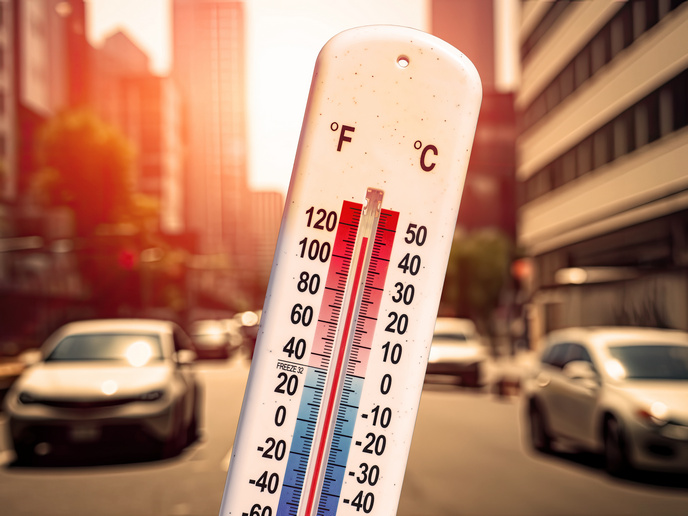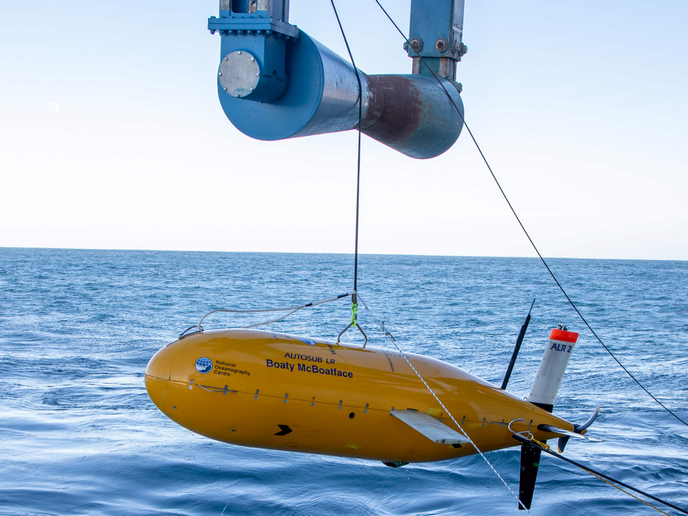Heatwaves and air pollution combined: Europe’s silent killer
Air pollution is a major environmental challenge, elevating mortality rates across Europe. This problem is further exacerbated by heatwaves due to climate change, which results in increased levels of ozone and particulate matter(opens in new window). Wildland fires and smoke further compound the impact on European populations, increasing premature death and hospitalisation due to lung and heart diseases. Identifying vulnerability factors within communities and regions is central to climate change policies.
Health impacts of extreme heat and air pollution
The EU-funded EXHAUSTION(opens in new window) project sought to quantify shifts in cardiopulmonary disease (CPD) mortality and morbidity due to extreme heat and air pollution. Researchers considered various climate scenarios and identified strategies for mitigating adverse effects. To visualise the impact of various possible future scenarios on mortality across European cities, they developed an interactive tool(opens in new window). Utilising epidemiological methods, the study established the relationship between temperature and daily number of deaths across Europe and estimated the health burden(opens in new window). Moreover, it examined the impact of concurrent air pollutants(opens in new window), such as particulate matter and ozone, on the heat-health relationship. “We observed air pollution to significantly modify heat-health impacts, with a higher increase in deaths from respiratory diseases when air pollution levels were high,” highlights project coordinator Kristin Aunan. EXHAUSTION also assessed vulnerability factors across cities, unveiling an elevated risk of 60 % of CPD mortality and morbidity during heat exposure. The elderly and females were more vulnerable, and there were geographical and seasonal variations. Moreover, urban factors affected the risk of heat-related mortality(opens in new window). People living in urban areas with dense populations, high air pollution levels, and low coverage of green spaces demonstrated greater vulnerability to heat(opens in new window).
Heat and air pollution projections: the role of wildfires
EXHAUSTION projected heat stress indicators for rising heatwave duration and intensity(opens in new window), and associated changes in air pollution levels. Although air pollution surface concentrations are projected to decrease, the contribution from wildfire emissions(opens in new window) is expected to increase, making it more difficult to reach air quality targets. Wildfires are emerging as a key source of particulate matter pollution, especially in eastern Europe(opens in new window).
Implications for climate change policies and public health
In the future, even with lower emissions, more people may die from heat than those saved from cold-related deaths, leading to an overall increase in temperature-related deaths. A recently published modelling study(opens in new window) across 854 European urban areas indicated that climate change could lead to over 2.3 million additional temperature-related deaths by the end of the century. “We would need an almost complete attenuation of the heat-related mortality risk (90 % decrease) to reverse the net effect on mortality of climate change,” highlights Aunan. In conclusion, the work undertaken by the EXHAUSTION project underscores the critical importance of revamping urban environments and enhancing living conditions across Europe to combat the compounding effects of air pollution and rising temperatures. “It is becoming more and more evident that air quality and climate change are intertwined challenges and must be tackled together,” emphasises Aunan. Alignment of the EU air pollution mitigation measures with the new WHO Air quality guidelines(opens in new window) is expected to bring significant health benefits. To succeed, these measures must prioritise the protection of the most vulnerable population groups. The findings from EXHAUSTION will shape forthcoming studies.







